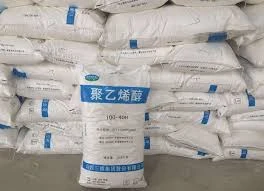The Versatility of Cellulose Polymer
Cellulose is the most abundant organic polymer on Earth, playing a vital role in the structure of plants. Derived from the cell walls of green plants, cellulose is composed of linear chains of glucose molecules linked by β(1→4) glycosidic bonds. The properties of cellulose make it an attractive material for a variety of applications, particularly in the form of cellulose polymers.
The Versatility of Cellulose Polymer
One of the most prominent uses of cellulose polymers is in the production of eco-friendly materials. With a global shift towards sustainability, cellulose-based materials are gaining significant attention as alternatives to petroleum-based products. Biodegradable plastics made from cellulose are becoming popular, as they offer a way to reduce plastic pollution while maintaining functionality. These materials decompose naturally, returning to the environment without leaving harmful residues.
cellulose polymer

In the food industry, cellulose polymers play a crucial role as thickeners, stabilizers, and emulsifiers. Cellulose derivatives like carboxymethyl cellulose (CMC) and hydroxypropyl cellulose (HPC) are widely used in food products to improve texture and shelf life. They help maintain moisture and enhance the stability of emulsions, contributing to the overall quality of processed foods. Moreover, these cellulose-based additives are often regarded as safe, making them an integral part of many food formulations.
The pharmaceutical sector has also embraced cellulose polymers for their biocompatibility and versatility. They are commonly used in drug formulation as binders, film-forming agents, and controlled-release matrices. The ability of cellulose to form gels and films is highly beneficial in developing drug delivery systems, allowing for the sustained release of medications.
Overall, the application of cellulose polymers extends beyond these industries, finding uses in cosmetics, personal care products, and construction materials. As research continues to unlock the potential of cellulose, we are likely to see enhanced performance and new applications emerge.
In summary, cellulose polymers represent a crucial component in the development of sustainable solutions across multiple sectors. With their unique properties and versatility, these natural polymers provide an effective means to address some of the pressing environmental challenges we face today, all while contributing to innovation in various fields. The future of cellulose polymers appears bright as we continue to explore their capabilities and expand their applications.
-
A Comprehensive Guide to Methyl Ethyl Hydroxyethyl Cellulose: Applications and Industry InsightsNewsNov.24,2025
-
Understanding Methyl 2 Hydroxyethyl Cellulose: Uses, Benefits & Industry InsightsNewsNov.24,2025
-
Hydroxyethyl Methyl Cellulose HEMC: Industrial Uses, Benefits & Future TrendsNewsNov.23,2025
-
HEMC Cellulose: Versatile & Sustainable Industrial Polymer | YoungcelNewsNov.23,2025
-
Methyl Hydroxyethyl Cellulose: Versatile Building Block for Industry & SustainabilityNewsNov.23,2025
-
CAS 9032 42 2: Understanding Polyvinyl Alcohol's Impact on Industry & SustainabilityNewsNov.22,2025




